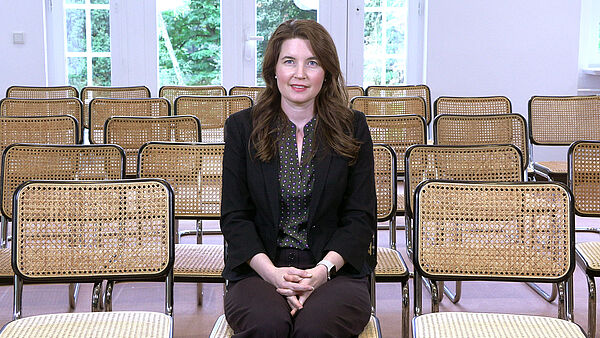
Elizabeth Canning, Ph.D.
Associate Professor of Psychology
Washington State University, Pullman
Born in 1989 in Oklahoma City, Okla., USA
B.A. in Psychology, University of Oklahoma, M.A. and Ph.D. in Social Psychology, University of Wisconsin-Madison
Arbeitsvorhaben
Instructors as Meaning-Makers: How Belief Systems Shape Growth-Mindset Culture
Imagine a student receives a disappointing grade on an exam—their “belief system” about what that exam grade means about their intelligence is likely to shape their response. Extensive research has illustrated how mindset beliefs (i.e., people’s beliefs about the fixedness or malleability of intelligence) operate as a “meaning system” that influences the types of goals students set, how they attribute, interpret, and respond to struggles, and whether they seek or avoid challenging tasks and learning opportunities. A student who holds a fixed mindset believes intelligence is a stable, unchangeable trait. Thus, they are likely to interpret their disappointing grade as a reflection of weak ability that they can’t do much to change, which may lead them to expend less effort and underperform. A student who holds a growth mindset believes that intelligence is malleable and can be developed over time. Thus, they are likely to interpret their disappointing grade as a sign that they need to put in more effort, seek help, and use different strategies when preparing for the next exam.Most of the research in this area focuses exclusively on students and their belief systems, without considering the institutional, cultural, and contextual environment that either corroborates or negates these belief systems. This proposed project considers mindset beliefs as a philosophy or meaning system that is embedded in the culture of a classroom environment and shaped by the instructor. Classroom cultures provide a coherent meaning system that students use for understanding and responding to academic events. During my time at the Wissenschaftskolleg, I will work on synthesizing several mixed-methods data sources to provide empirical support for a theoretical model of growth-mindset classroom culture that includes (a) teachers’ beliefs and intentions for the culture they plan to create; (b) teachers’ implementation of the culture, communicated by what they do and say in the classroom; and (c) students’ interpretation of the classroom culture—including their perceptions and experiences. My project will form a unified model of how teachers’ and students’ belief systems interact to either facilitate or inhibit curiosity, learning, effort, motivation, and performance.
Recommended Reading
Canning, Elizabeth A., Katherine Muenks, Dorainne J. Green, and Mary C. Murphy (2019). “STEM Faculty Who Believe Ability Is Fixed Have Larger Racial Achievement Gaps and Inspire Less Student Motivation in Their Classes.” Science Advances 5 (2): eaau4734. https://doi.org/10.1126/sciadv.aau4734.
Canning, Elizabeth A., Elise Ozier, Heidi E. Williams, Rashed AlRasheed, and Mary C. Murphy (2022). “Professors Who Signal a Fixed Mindset about Ability Undermine Women’s Performance in STEM.” Social Psychological and Personality Science 13 (5): 927–937. https://doi.org/10.1177/19485506211030398.
Canning, Elizabeth A., Makita White, and William B. Davis (2024). “Growth Mindset Messages from Instructors Improve Academic Performance among First-Generation College Students.” CBE–Life Sciences Education 23 (2). https://doi.org/10.1187/cbe.23-07-0131.
Kolloquium, 24.02.2026
Creating a Culture of Growth in the Classroom
Many of us at Wiko teach others as part of our profession and all of us have been students at one point in time. In this talk, I will present research that shows how our beliefs about the nature of intelligence influence not only our own motivation, but the motivation and experiences of those we teach.
Publikationen aus der Fellowbibliothek
Canning, Elizabeth (Bethesda, Md., 2024)
Canning, Elizabeth (London, 2022)
Professors who signal a fixed mindset about ability undermine women's performance in STEM
